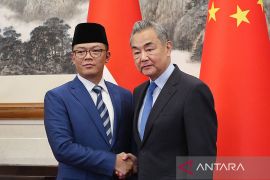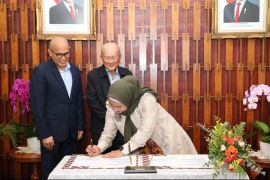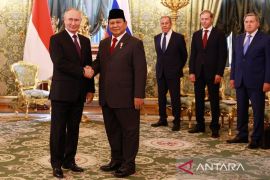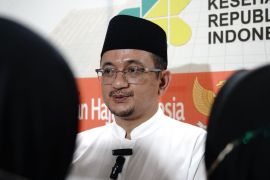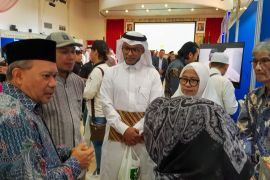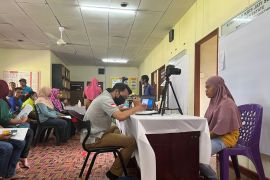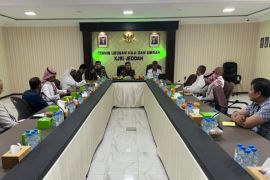The consulate general office also called on Indonesians residing in Hong Kong to avoid participating in the rally in Hong Kong, which it considered to be a domestic affair between Hong Kong and the Chinese government.
Earlier, on Saturday (Sept. 27), scores of people gathered in the heart of Hong Kong seeking greater democracy, as tensions rose over Beijings decision to rule out free elections in the former British colony.
Reuters news agency reported that the crowds re-appeared less than 24 hours after the riot police used pepper spray to disperse the protesters around the government headquarters, arresting more than 60 people who opposed the Chinese governments decision to tighten its grip on the city.
The turmoil highlights the obstacles that China faces in Hong Kong as a restive younger generation challenges its influence over the densely populated financial hub.
One protester stated that she had joined the protests to secure a better future for her five-year-old son, who was by her side wearing swimming goggles to protect himself in case the police used more pepper spray.
"If we do not stand up, we will be worried about his future," noted the 33-year-old woman named Li.
"He cannot choose his own future," she added.
The demonstrators broke through a security cordon late on Friday and scaled perimeter fences to enter the citys main government compound in the culmination of a week-long rally to demand free elections.
According to the hospital authorities, 34 people had been treated in the hospital by Saturday evening as a result of the clashes.
The protesters were individually removed from the demonstration area on Saturday afternoon, and some of them were carried away.
"The police have used disproportionate force to stop the legitimate actions of the students, and its actions should be condemned," affirmed Benny Tai, one of the three main organizers of the pro-democracy Occupy Central movement.
Hong Kong was handed over to China by the British in 1997 under a formula known as "one country, two systems," with a high degree of autonomy and freedom that is not enjoyed in mainland China.
Universal suffrage was set as an eventual goal. But, last month, Beijing rejected demands of the people to freely choose the citys next leader in 2017, prompting threats from activists to shut down the Central financial district in the so-called "Occupy Central campaign." China wants to only allow candidates vetted by Beijing to participate in the election.
EDITED BY INE/f001
(A051/KR-BSR/F001)
Editor: Suryanto
Copyright © ANTARA 2014
